
Microbiome-related facilities & resources at Purdue

Bindley Core for Genomics (BCG)
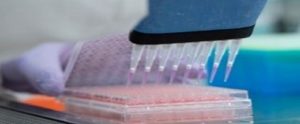
The Bindley Core for Genomics (BCG) does Illumina MiSeq full or partial runs and a range of quality control assays on instruments such as the Agilent Bioanalyzer and the ThermoFisher Qubit.
Webpage: Bindley Core for Genomics
Contact: bbcgenomics@purdue.edu
Bioinformatics Core

The vision of the Bioinformatics Core is to facilitate, amplify, and accelerate biological research and discovery through application of bioinformatics. It does so by delivering high quality analysis in a timely and economical manner, being responsive to customer needs and evolving with advances in the field.
Webpage: Bioinformatics Core – Purdue University
Contact: bioinformatics@purdue.edu
Clinical Research Center
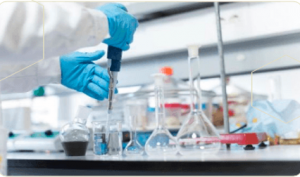
The Indiana CTSI Clinical Research Center (CRC) provides space, equipment, and support to conduct academic and industry sponsored clinical research studies for both inpatient and outpatient visits. The center maintains facilities at both Indiana and Purdue Universities and is available for use by researchers from both institutions. Medically trained staff provides services and support in phlebotomy, intravenous catheter placement, serial blood draws, infusions/injections, protocol development, and reference lab tests. The bionutrition staff supports CRC investigators’ research by providing dietary expertise and nutrition research services including: budget consultation, diet development, meal preparation and service, nutritional counseling, dietary recalls and diaries, nutritional analysis, dietary homogenates, and facilities to support clinical research.
Webpage: Indiana CTSI Clinical Research Center
Contact: mforman@purdue.edu
Computational Life Sciences and Informatics

CLSI develops and applies computational tools and techniques to solve complex life science problems, specializing in mass-spectrometry differential ‘omics, including custom data management, database analysis and design, and software development.
Webpage: Computational Life Sciences and Informatics – Bindley Bioscience Center – Purdue University
Contact: nnikolai@purdue.edu
Flow Cytometry and Cell Separation Facility

The Bindley Flow Cytometry and Cell Separation Facility provides advanced cell sorting and cell analysis techniques including immunofluorescence detection of 18 colors, cell-cycle distribution, apoptosis measurements, cytokine detection, data analysis and more. We will train those users interested in running their own samples on the BD Fortessa or the BC FC500. Facility staff will run all experiments on the FACS Aria III. The facility provides expert consultation for protocol development so that experiments are appropriately designed and implemented.
Webpage: Flow Cytometry and Cell Separation Facility – Bindley Bioscience Center – Purdue University
Contact: hutchcroft@purdue.edu
Laboratory of Renewable Resource Engineering (LORRE)
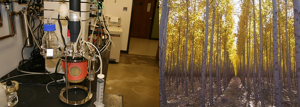
LORRE carries out fundamental research that impacts the engineering and agricultural research enterprises at Purdue University, and contributes to new knowledge for the engineering of renewable resources.
The research draws on expertise, infrastructure, and fundamental science in a range of areas that are combined into multi-disciplinary problem solving approaches. These approaches provide LORRE students and researchers experiences that integrate discovery, learning, and engagement through the practice of bioprocess engineering.
.Webpage: Homepage – LORRE
Contact: ladisch@purdue.edu
Life Sciences Electron Microscopy Facility
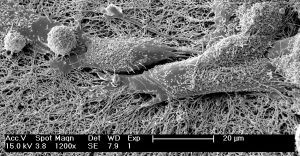
The LSMF is a full service electron microscopy core with both service and individual use options. Equipment includes two field-emission SEMs equipped with cryo, EDX, low vacuum, and tensile stage. Also available are 2 TEMs, routine and cryo sample preparation instrumentation, and other support equipment. Basic light microscopes are equipped with color digital cameras and optics for Bright-field, Nomarski DIC contrast, Fluorescence, and stereo imaging.
Webpage: Purdue University LMSF
Contact: gilpin@purdue.edu
Metabolite Profiling Facility

The MPF utilizes gas chromatography and liquid chromatography coupled with mass spectrometry for the analyses of small, biological molecules. We collaborate with research investigators who are conducting metabolomic studies, by providing technical assistance with sample preparation, data acquisition, analysis, and interpretation of experimental information. The lab performs both quantitative analysis and non-targeted d molecular screening.
Webpage: Purdue University MPF
Contact: bbcmpf@purdue.edu
Purdue Imaging Facility (PIF)

Specializes in light microscopy, pre-clinical molecular, computed tomography and nuclear imaging. Provides the instruments and expertise needed to visualize molecules in preparations ranging from single cells to entire animals. All facility users receive individualized instrument training as well as project-specific advice for optimal data acquisition. Consultation on sample preparation, image rendering, and data analysis are also available as our knowledge base permits.
Webpage: Purdue Imaging Facility – Bindley Bioscience Center – Purdue University
Contact: bbcpif@purdue.edu
Purdue Proteomics Facility

The Purdue Proteomics Facility (PPF) provides innovative state-of-the-art LCMS/MS analysis of proteins in clinical, environmental and other biological samples. It enables both targeted and global analysis of proteins, their post-translational modifications and analysis of protein complexes and protein-protein interactions.
Webpage: Purdue Proteomics Facility
Contact: uaryal@purdue.edu
Purdue Stable Isotope (PSI) Facility
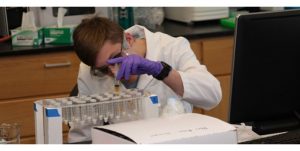
The Purdue Stable Isotope (PSI) facility is a state-of-the-art multi-user, stable isotope laboratory. The PSI group conducts research in a range of environmental and climate-related areas, including biogeochemistry, hydrology, ecology, and paleoclimatology. The PSI facility specializes in experimental biogeochemistry, education, and contract analyses.
Webpage: Purdue Stable Isotope Facility
Contact: jmsparks@purdue.edu